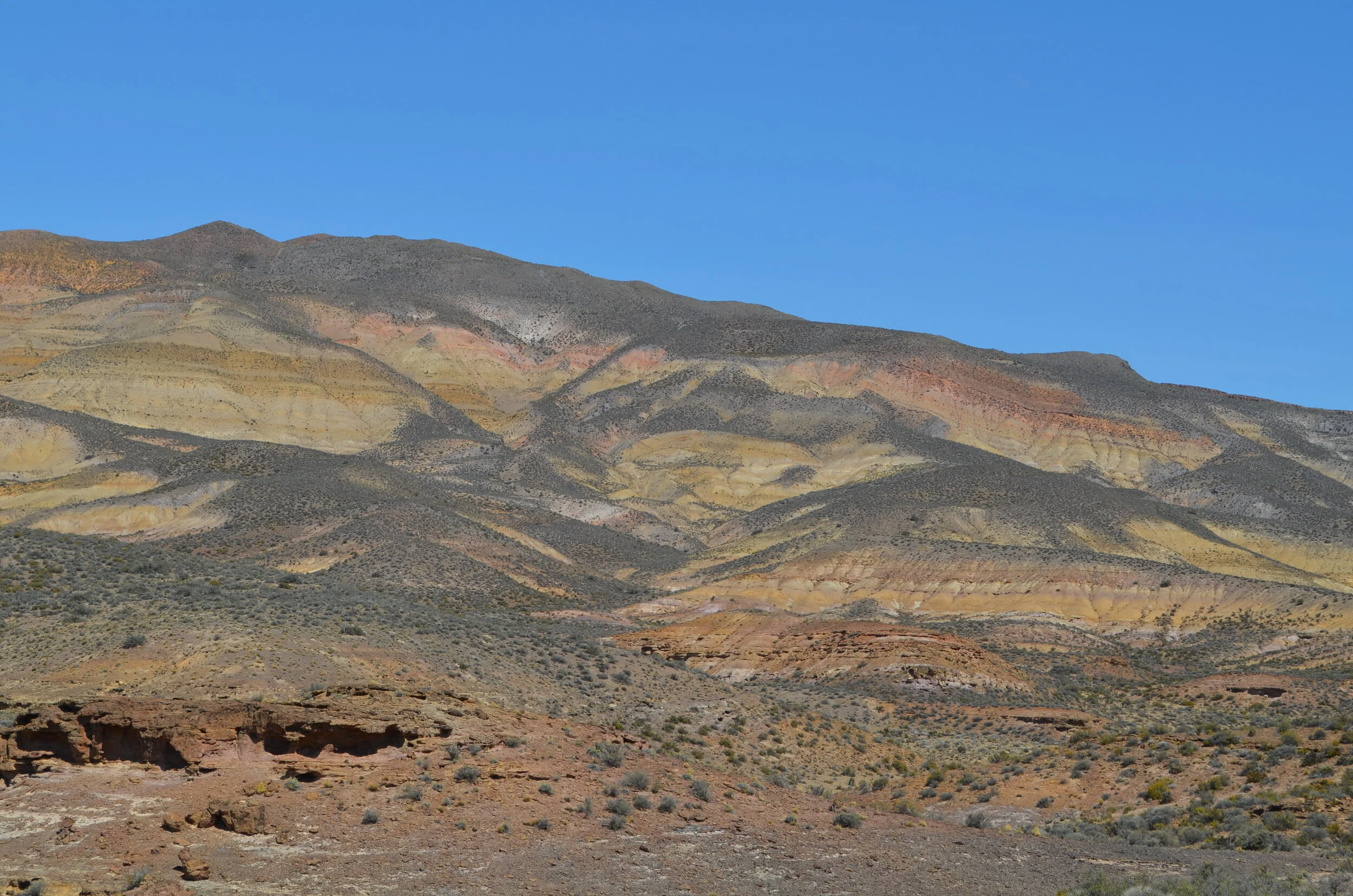Patagonia 2019-2020
Paso del Sapo and Lefipán Formations, Chubut Province, Argentina
For my second field season in Chubut Province, northern Patagonia, Argentina, I spent about 4 weeks with my mentor, Kristina, finishing final field work goals for both my thesis project and her dissertation. I was awarded the Undergraduate Research Fellowship from UT’s Office of Undergraduate Research as well as a matching grant from the Jackson School of Geosciences that funded my international and domestic travel for the trip.
The first week of work consisted of measuring 150+ meters of section of the Paso del Sapo and Lefipán Formations, key basin-fill sequences in Kristina’s dissertation work, to refine depositional environment interpretations. At the start of the second week, we met with Kristina’s collaborator, Andrés Echaurren, and spent two weeks gathering cross-sectional magmatic arc samples for geochemical, geo- and thermochronology analyses. Coupling these datasets with structural field observations, we hope to reveal a more detailed evolution of the magmatic arc and associated foreland deformation. Additionally, as part of a new project that builds on my thesis, we collected Paleozoic and Jurassic basement rocks across our study area for Lu-Hf geochemical analyses, which we will couple with detrital TREE analyses of Cretaceous basin-fill rocks to further clarify regional provenance.
For our fourth and final week in the field, Kristina and I returned to Paso del Sapo to record detailed, centimeter-scale stratigraphic sections in order to highlight channel and bar geometries. Our final days in Patagonia were quite bitter-sweet. Before I knew it, my extraordinary undergraduate field work experience was over and I had to kiss the rocks goodbye. Patagonia, Argentina will forever be the place where I fell in love with geology - I hope I can return soon to build on this passion.
Field sites of this research are within the territories of the Mapuche, Tehuelche, and Günün a küna Peoples.












